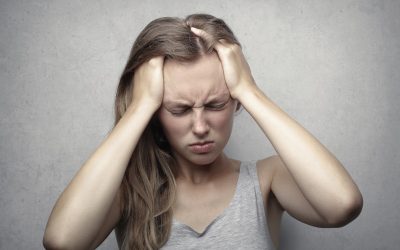Hair has always been more than just appearance. It is closely tied to identity and confidence. During menopause, many women begin to notice that their hair no longer feels as full, thick, or healthy as it once did. Thinning at the crown, wider partings, or more hair left in the shower drain can feel alarming and deeply personal. Sometimes, it affects confidence in both social and professional settings.
The reassuring news is that female hair loss menopause is a challenge that can be managed. With the right mix of treatments, lifestyle changes, and professional support in Dublin, women can protect their hair and encourage regrowth. Understanding why it happens and exploring your options gives you the power to take back control and rebuild confidence.
What Are the Reasons for Female Hair Loss Menopause?
One of the main drivers of hair changes in menopause is hormonal fluctuation. As oestrogen and progesterone levels fall, the body’s balance shifts. Oestrogen normally helps keep hair in its growth phase for longer. When it declines, hair cycles shorten. At the same time, androgens (male hormones present in all women) may have a stronger effect, leading to follicle shrinkage and thinning strands.
This type of loss is different from alopecia areata, where hair falls out in patches. It is also unlike stress-related shedding, which often recovers naturally.
Menopausal hair loss tends to be gradual and progressive, particularly noticeable around the crown and parting line. In Ireland, factors such as family history, nutritional patterns, and even stress linked to midlife transitions can also play a role in how pronounced the changes become.
Common Signs of Female Hair Loss Menopause
The first sign many women notice is an increase in shedding. This means more hair on your pillow, in your brush, or in the shower. While some daily loss is normal, a clear increase may indicate hormonal changes are affecting your follicles.
Other signs include a visible widening of your parting line or general thinning at the crown. Hair may also become finer, drier, or more brittle, making it harder to style.
These changes often creep in gradually. This is why taking note of patterns and seeking early advice can make a big difference in long-term outcomes.
Although hormones are a key factor, other issues can make menopausal hair loss worse. Nutritional deficiencies are common among women over 50 in Ireland, especially lower levels of iron, vitamin D, and certain B vitamins that support healthy follicles. Without these nutrients, the body prioritises essential functions over hair growth.
Thyroid disorders, which also become more common around midlife, can contribute to thinning hair. Medications used to manage chronic conditions may list hair shedding as a side effect. Stress, whether from work, family, or health concerns, can push more follicles into the shedding phase. Genetics also play a role. If your mother or grandmother experienced hair thinning after menopause, you may be more predisposed yourself.
Will Hair Lost from Menopause Grow Back?
This is one of the most common questions women ask. The answer depends on how far follicle changes have progressed. If follicles are still active but producing finer hairs, treatments can often stimulate thicker regrowth. For many women, this means that while hair may not return to its youthful density, noticeable improvement is possible.
Patience is essential. Most medical and professional hair loss treatments require at least three to six months before you see results. Some women first notice reduced shedding, followed by subtle thickening or more even coverage.
Since progress can be hard to spot in the mirror, hair loss specialists often suggest taking regular photos from the same angle and under the same lighting. This makes subtle gains easier to track and provides encouragement to stay consistent.
However, if follicles have been dormant for a long time, regrowth becomes less likely. This is why early intervention is so important. In Dublin and across Ireland, specialists often recommend starting menopausal hair loss treatment at the first signs of thinning, as this offers the best chance of seeing results.
How Can I Stop My Hair from Falling Out During Menopause?
If you are currently experiencing shedding, there are steps you can take right away. Medical options may include hormone replacement therapy (HRT), which can balance oestrogen levels and slow the effects on hair. Topical hair loss treatments are widely recognised and can stimulate follicles back into the growth phase. In some Irish hair clinics, scalp therapies such as platelet-rich plasma (PRP) injections or low-level laser therapy may also be offered.
Before starting any medical treatment, it is wise to consult your hair loss specialist. They can rule out other causes, such as thyroid issues. They can also ensure the option you choose is safe for your overall health. For example, HRT may not be suitable for women with certain medical histories, but alternatives exist. Being guided by professional advice prevents wasted effort and increases the chance of success.
Lifestyle adjustments can also make a difference. Eating a balanced diet with iron-rich foods like leafy greens, oily fish such as salmon, and whole grains supports follicle strength. Stress management is equally important, whether through yoga, walking in Dublin’s parks, or mindfulness practices that lower cortisol levels. Gentle hair care, such as avoiding harsh dyes and limiting heat styling, will also protect strands from breaking prematurely.
At-Home and Lifestyle Strategies for Menopausal Hair Loss
Supporting hair health does not always require clinical treatments. Everyday choices can play a big role in how resilient your hair remains through menopause.
Nutrition is the cornerstone, ensuring enough protein, vitamins, and minerals in your daily meals. Traditional Irish staples such as oats and root vegetables provide slow-release energy and nutrients that support overall health. Meanwhile, adding nuts and seeds boosts zinc and omega-3 intake.
Scalp care is another often overlooked element. Using nourishing oils, massaging your scalp to increase blood flow, and switching to gentle shampoos can all create a healthier environment for growth. Managing stress levels not only benefits your hair but also your overall well-being, helping you approach this life stage with greater resilience and balance.
When to Seek Professional Help in Dublin for Menopausal Hair Loss
If the shedding is progressing despite your efforts, it may be time to seek professional support. Trichologists and dermatologists can carry out detailed scalp assessments, ruling out underlying health issues and recommending tailored treatments. In Dublin and other Irish cities, clinics offer a mix of medical, nutritional, and therapeutic approaches that go beyond what is possible at home.
The advantage of professional hair loss intervention is accuracy and personalisation. Instead of guessing which hair growth products or supplements might help, you will know what is truly effective for your situation. Many women find peace of mind in having a clear plan, along with realistic expectations for what results are achievable.
How to Prevent Further Hair Shedding During Menopause
Even if you have slowed hair fall, ongoing prevention is important to maintain results. This includes adopting protective hairstyles that reduce tension on the scalp, such as loose braids rather than tight ponytails. Using silk pillowcases can also minimise breakage overnight.
Lifestyle choices also play a preventative role. Staying hydrated, avoiding smoking, and limiting alcohol all support circulation and follicle health.
For women in Ireland, regular blood tests can help detect deficiencies early, ensuring supplements are targeted and effective. Hair care routines should also be climate-aware. Ireland’s damp weather can cause frizz and breakage. So, using protective serums or anti-humidity sprays helps maintain strength.
Supplements tailored for women over 50, including vitamin D and biotin, may provide extra support. Regular monitoring of your scalp health, such as checking for changes in texture or density, allows you to act quickly if issues arise again.
Ultimately, prevention is about consistency. Keep up with the healthy habits that support not just your hair but your overall vitality during and after menopause.
In conclusion, female hair loss during menopause may feel overwhelming. However, it is not something you have to face without support. Understanding the reasons behind it, recognising the signs early, and choosing the right combination of treatments and lifestyle changes can make a real difference. Across Dublin and Ireland, women are finding that proactive steps can restore not only their hair but also their confidence.
Are you ready to take control of female hair loss menopause? Acting today gives you the best chance of protecting your hair and boosting your confidence. Call us on +353 (0)1 6793618 to book a consultation and start a tailored routine now!



